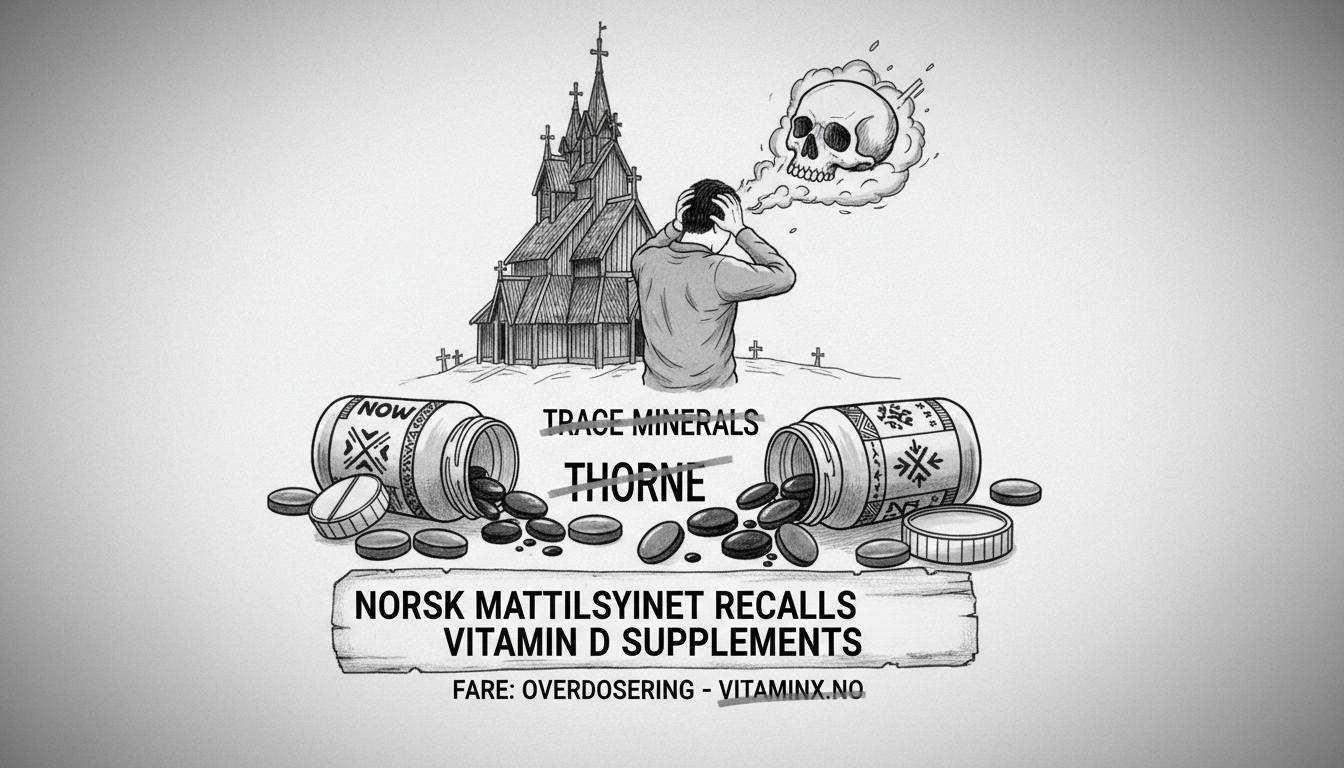Norwegian health authorities have ordered the recall of several vitamin D supplements found to contain dangerously high levels of the vitamin. The products exceed legal limits for vitamin D content, posing potential health risks to consumers.
The recall affects vitamin D supplements from brands NOW Foods, Trace Minerals, and Thorne. These products contain 125 micrograms or 5000 international units of vitamin D. Norwegian food safety officials confirmed the excessive dosage violates national regulations.
Anesto AS, the company distributing these supplements, is conducting the voluntary recall. The products were sold exclusively through the online store vitaminx.no. Consumers who purchased these items should immediately stop using them.
Long-term consumption of excessive vitamin D can cause serious health damage. The body stores excess vitamin D, which can accumulate to toxic levels over time. Short-term use does not typically produce acute symptoms, but prolonged consumption poses significant risks.
Vitamin D toxicity can lead to hypercalcemia, a condition where calcium builds up in the blood. This may cause nausea, vomiting, weakness, and frequent urination. In severe cases, it can progress to bone pain and kidney problems.
Norway maintains strict regulations for dietary supplements through the Norwegian Food Safety Authority. The country follows European Union guidelines while implementing additional national protections. This recall demonstrates Norway's proactive approach to consumer safety.
Norwegian authorities regularly monitor supplement markets for compliance. The discovery of these over-concentrated products resulted from routine quality control checks. Such oversight reflects Norway's commitment to public health protection.
International consumers should note that supplement regulations vary by country. What's legal in one market may be prohibited in another. Norway's standards often exceed those in other regions, including the United States.
Experts recommend consulting healthcare providers before taking high-dose supplements. Individual vitamin D needs depend on factors like age, skin tone, and sun exposure. Blood tests can determine appropriate dosage levels.
The recall affects only specific batches from these three brands. Other vitamin D products remain available in Norwegian markets. Consumers should verify their supplements comply with local regulations.
This incident highlights the importance of regulatory oversight in the supplement industry. Even reputable brands can produce batches that exceed legal limits. Regular monitoring helps catch such deviations before widespread harm occurs.
Norwegian consumers generally trust their food safety systems. This recall may temporarily shake that confidence but ultimately demonstrates the system's effectiveness. Quick action prevents potential long-term health consequences for users.
What happens to recalled products? Companies must properly dispose of them according to environmental regulations. They cannot be resold or redistributed in any market.
The online retailer vitaminx.no must notify all customers who purchased these products. They should provide refunds or exchanges for affected items. Consumer protection laws guarantee these rights.
This situation serves as a reminder that natural doesn't always mean safe. Even essential vitamins become dangerous at excessive doses. Proper regulation balances access with safety.
Norwegian authorities continue investigating how these over-concentrated products reached the market. They will determine whether manufacturing errors or other factors caused the problem. Future regulations may tighten based on their findings.

